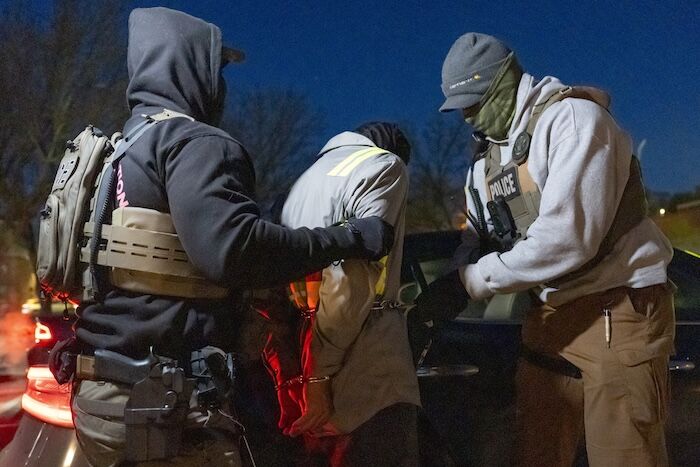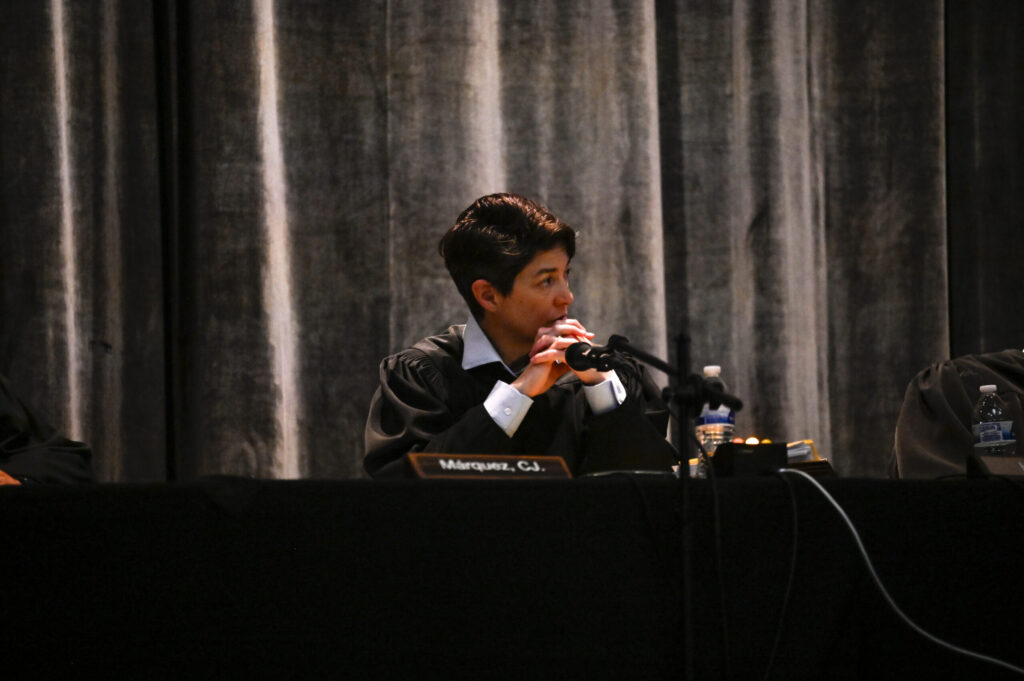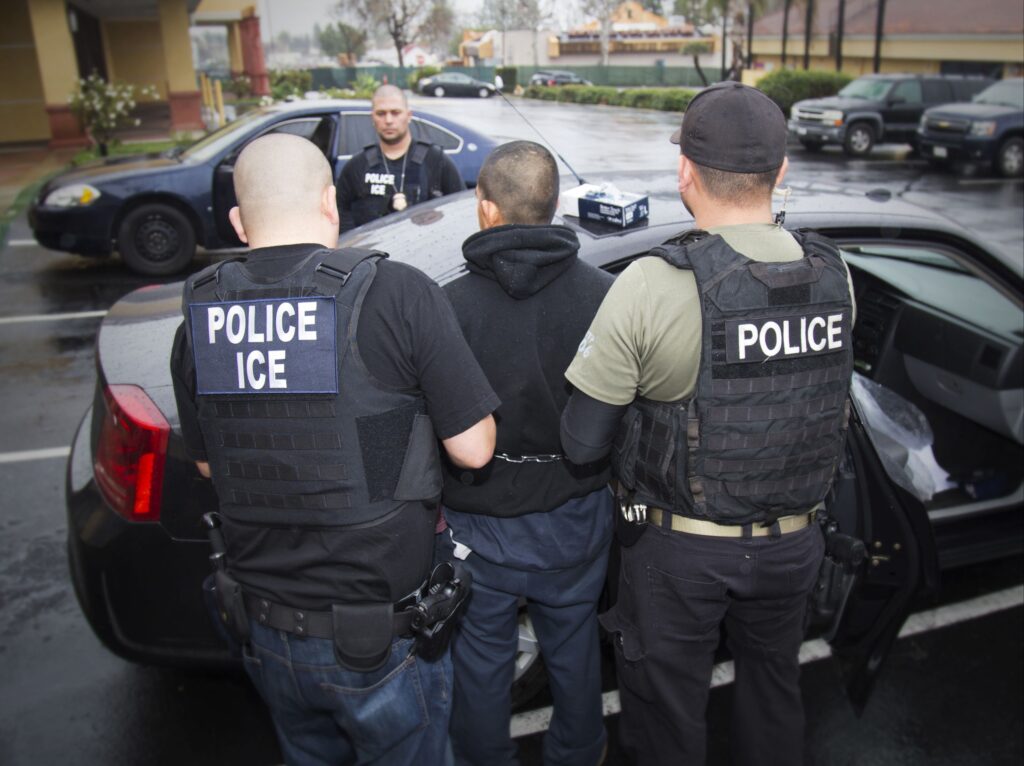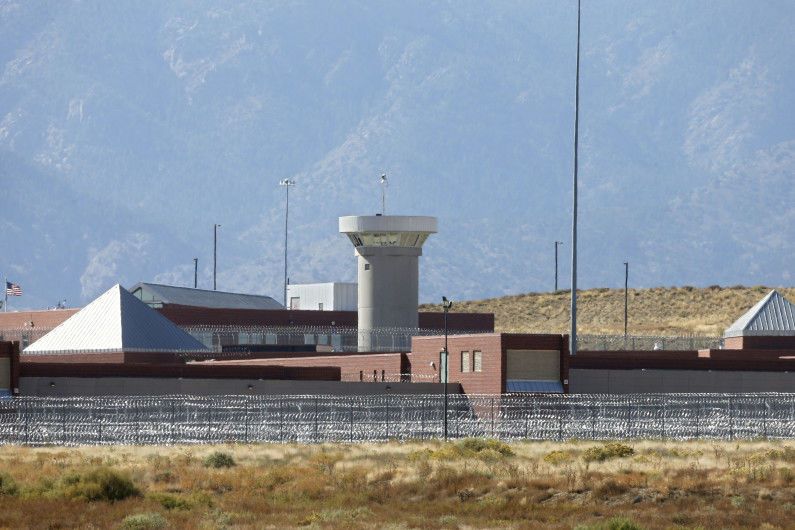‘I do not think we’re in a judicial crisis’: Federal, state judges speak of challenges for judiciary
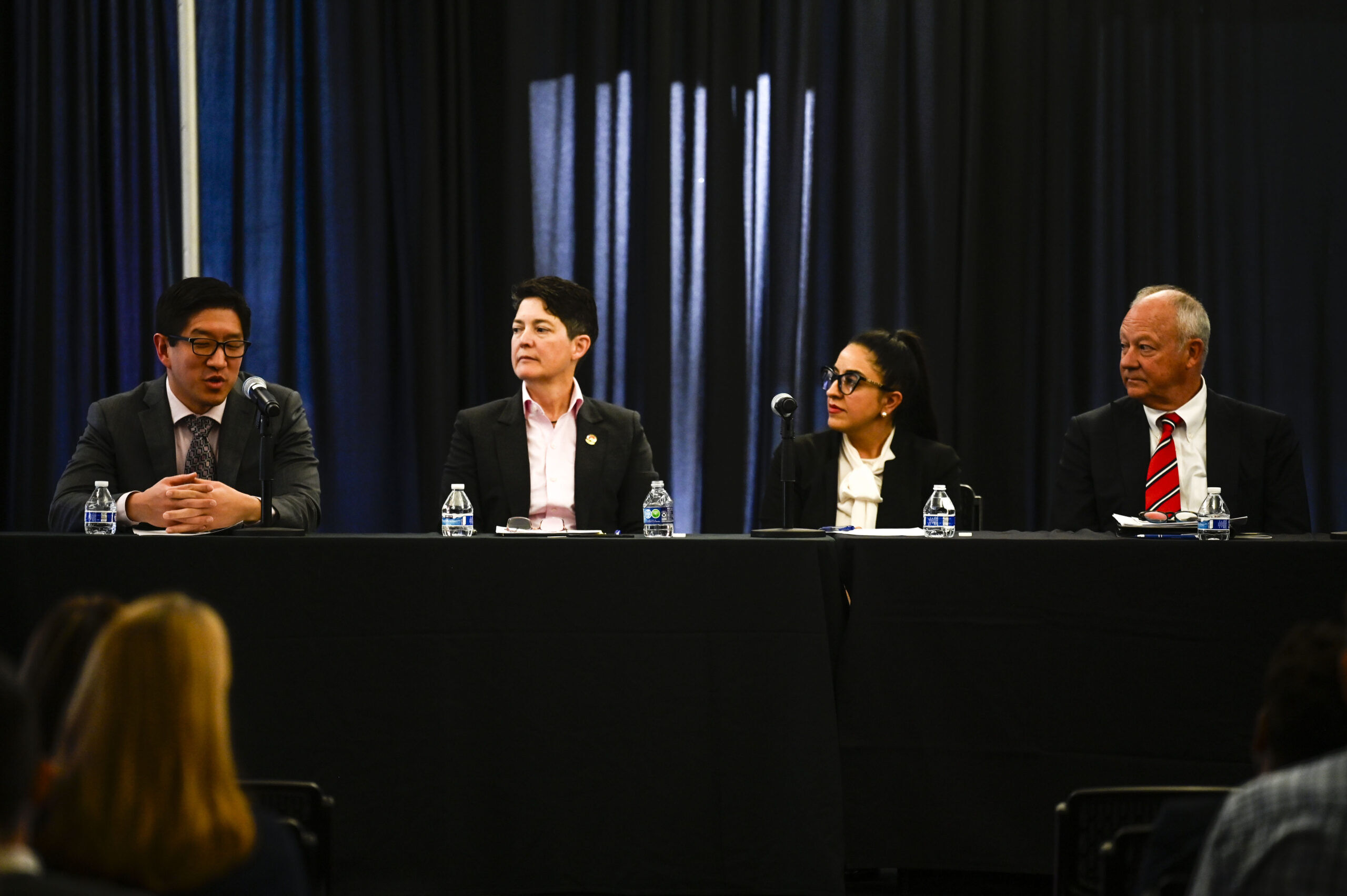
Members of Colorado’s federal and state judiciaries spoke on Wednesday about the concerns they see with how the public engages with judges’ work, and about judges’ limited ability to correct misinformation.
“Someone goes out there on social media and says, ‘Judge Chung is a terrible person, he got it wrong and I think he needs to suffer the consequences,’ I can’t jump on TikTok after that and say, ‘No, I really did get it right’,” said U.S. Magistrate Judge Cyrus Y. Chung.
Chung and the other panelists spoke at the University of Denver’s law school, in a conversation described as “the rule of law beyond politics.” Judge Timothy M. Tymkovich of the Denver-based U.S. Court of Appeals for the 10th Circuit said he did not see the judiciary as strictly “beyond” politics.
“We’re at the heart of our constitutional political system,” he said.
The discussion took place as the federal judiciary, in particular, has been the epicenter of conflict over the legality of the federal government’s activity. Recently, unnamed federal judges have publicly criticized the U.S. Supreme Court for repeatedly siding with the government without explanation, with one judge saying the courts are in a “judicial crisis.” Members of the Trump administration have also characterized judges as going rogue with their rulings, and GOP members of Congress have filed no fewer than nine resolutions to impeach judges this year.
“I do not think we’re in a judicial crisis,” said Tymkovich, who was appointed to the 10th Circuit in 2003. “I think that we’re part of the normal ebb and flow of disagreement over case law. Now, I would say, I think the polarization seems greater now than it has in the past and I think we all have an opinion about the sources of that. Certainly, social media and the fracturing of news information seems to affect part of that conversation. So, maybe we’re in a new-ish frontier.”
However, he continued, “for the most part we’ve resolved (disputes) very successfully over the centuries.”
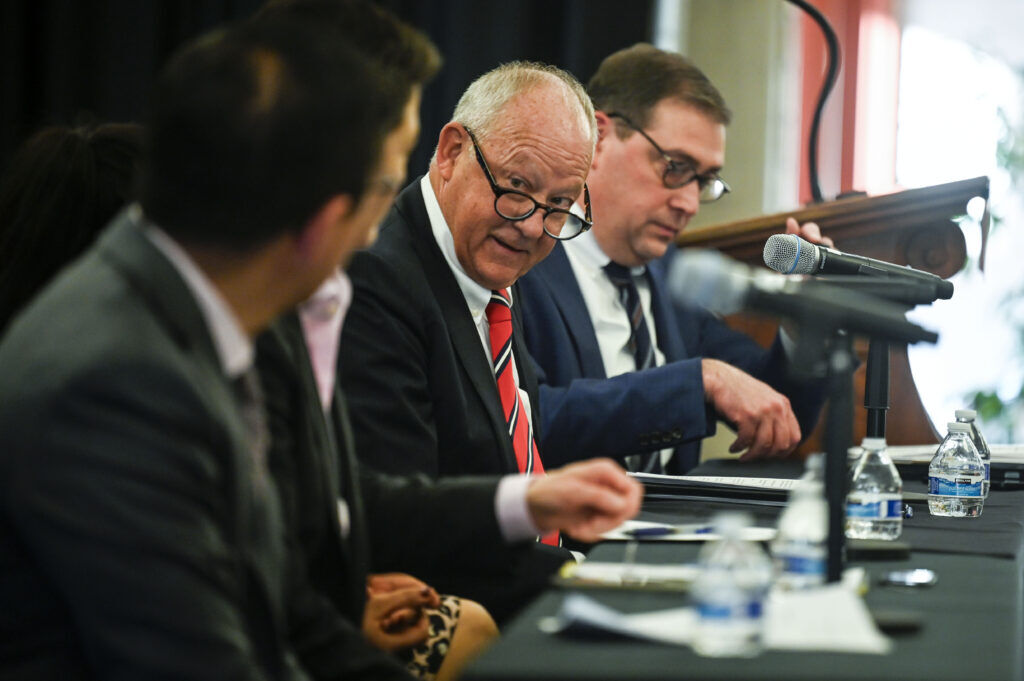
Chief Judge Susan Blanco, of the Eighth Judicial District in Larimer and Jackson counties, agreed that the public’s opinions are more “fast-moving” than before.
“I think we’re missing something in how everybody understands the way your government works and the way information is getting out. And it can be very misleading and it can be very dangerous,” she said.
Chung said he wanted to organize the discussion, in part, because of what he heard from people after he joined the federal bench in January.
“I got a lot of questions from generally well-educated people that reflected that our role as judges isn’t particularly well-understood. Questions like, ‘Because you’re a federal judge, do you sit in D.C.’?” he said. “‘When can I vote for you?’ The answer is never, I’m not elected.”
He added that judicial decisions are intended for people to read and understand, but he has seen social media commentary that veers away from the contents of cases.
“It starts to take aim at individuals, and people trying to criticize people who are judges. It’s like the difference between, if you’re watching a football game saying, ‘That’s a terrible pass interference call,’ which is based on the decision, and ‘That ref is a terrible ref. All the refs are corrupt’,” Chung said.
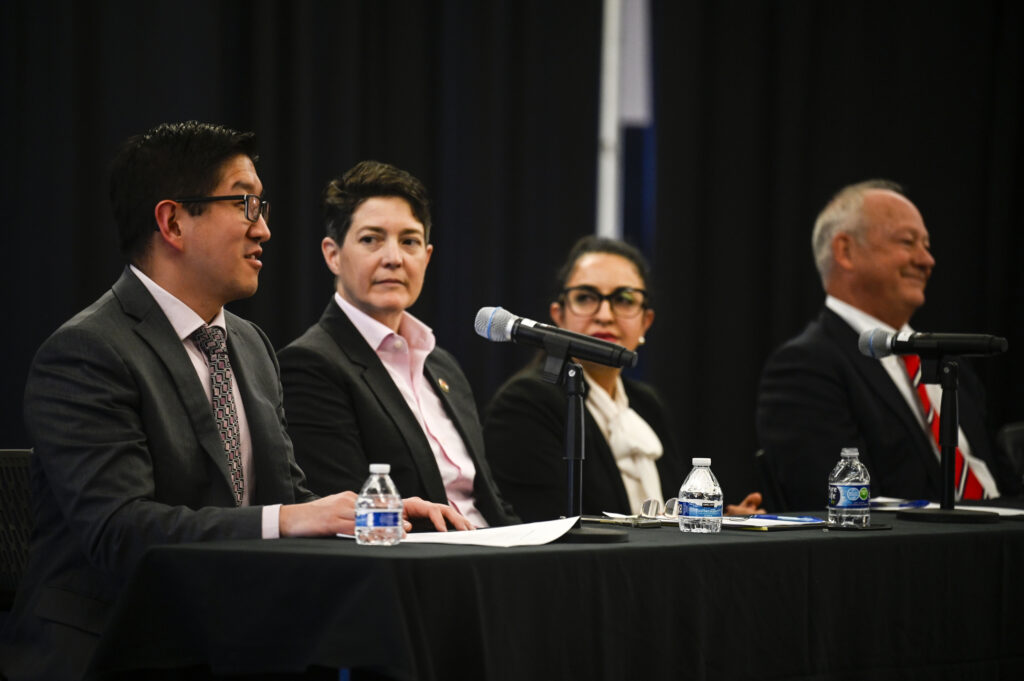
“There is a mismatch between the way we communicate to the public,” he continued. “Most of the time, the only voice that we have is through very longform opinions.”
“We can’t advocate very effectively for ourselves because of our codes of conduct,” agreed Tymkovich.
The DU event took place one day after state judges spoke separately to address how the judiciary should respond to attacks on their work from political actors.
“I don’t think we should respond. Entering into political discourse is not our job and, in fact, it could be viewed as a violation of our code of conduct,” said Judge Jaclyn Casey Brown of the Court of Appeals during that discussion.
Chief Justice Monica M. Márquez, who appeared at both events, told the DU audience about how the Colorado Supreme Court approaches its work. She said the members decide to take cases after asking, “Can we write something useful?”
“I personally do not talk to any of my colleagues in advance of oral argument. I get concerned about groupthink and caucusing that might happen in advance,” Márquez said.
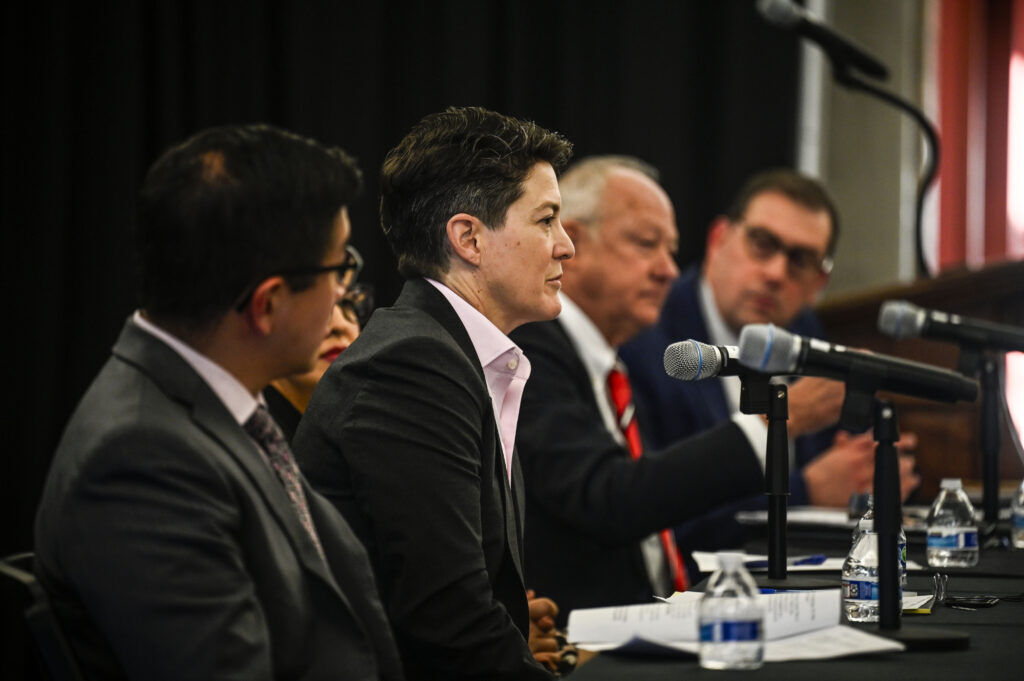
She explained that in casting votes, Colorado’s justices go in order of reverse seniority, with the newest member voting first.
“As a junior justice, I always wished I had the benefit of hearing from my senior colleagues on the other side of the table before I cast my vote. So, by the time I got to the senior side of the table, I couldn’t wait to speak because I wanted to interject and make sure the junior justices understood where I was coming from before they cast their vote,” she said.
Now, the court allows for a “free-flowing discussion” about cases, which Márquez said is beneficial before people lock in their votes. As the person who assigns the majority opinions, she also has to delegate that task while being mindful of irreconcilable positions people may take.
“Sometimes, you have to move up a level of generality. Because if you can all reach agreement at this basic level, but if you drop below the clouds and get in the weeds everybody’s fractured, then can we write a case at this (higher) level?” Márquez described. “You’d be amazed at the strongly held feelings people can have about things like insurance.”
The program was sponsored by the Faculty of Federal Advocates, Colorado Bar Association and DU’s law school.


